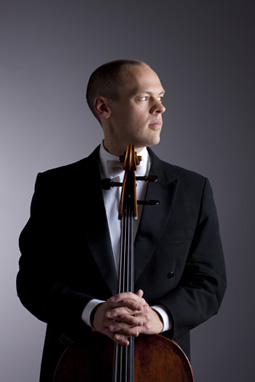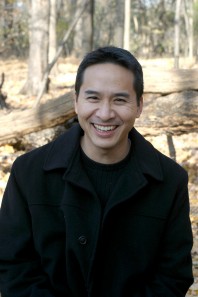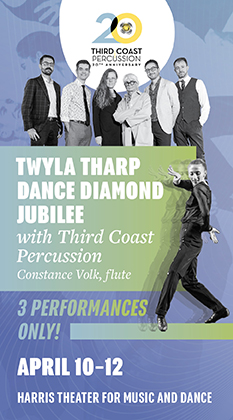Rich and elegant Rachmaninoff launches Rush Hour series in style

There are few finer Chicago musical traditions—nor better deals—than the summer Rush Hour concert series. From June through August a free concert running around 45 minutes is presented every Tuesday at St. James Cathedral, conveniently timed for departing workers, with gratis refreshments at 5:15 and concert at 5:45.
In addition to the high quality of its participating musicians, the Rush Hour programs offer an unusually ambitious and wide-ranging lineup, which this year includes a Mischa Zupko premiere (June 11) music for string quartet and pipa (July 2), a trombone quartet (July 23) and works by Steve Reich and Arvo Part (August 20).
This summer’s lineup opened Tuesday with more traditional fare, Rachmaninoff’s Cello Sonata, performed by Brant Taylor and Kuang-Hao Huang.
Written in 1901, the sonata is the finest product of Rachmaninoff’s scant chamber output. Hailing from the Russian composer’s time of resurgent creative recovery following the disastrous reception of his First Symphony, the Cello Sonata dates from the same period as the Piano Concerto No. 2 and Second Suite for two pianos. Cast in four movements, the work is chockablock with some of Rachmaninoff’s most indelible melodies, with equal display opportunities for both musicians.
Taylor, a CSO member, played with refined and elegant tone, eschewing the throbbing vibrato and more overt emotionalism of more Russian interpretations. Huang’s sensitive and aristocratic pianism was on the same level.

Yet there was no lack of expressive intensity or commitment. Taylor and Huang were fully in synch with the surging rhapsodic qualities as well as the brooding Russian melancholy. They judged the ebb and flow of the expansive opening movement with great skill and proved nimble in the ensuing scherzo with Taylor’s burnished tone soaring in the trio (one of the composer’s most profligate uses of a memorable theme).
The Adagio was especially fine with the musicians exploring an array of dynamic delicacy with rapt phrasing that underlined the Russian Orthodox echoes.
In this grand yet resonant space, the fast sections of the finale proved a bit of a blur and the piano sounded muddy at high volume but not enough to detract from this spirited and richly idiomatic performance.
The Rush Hour Concerts continue 5:45 p.m. June 11 with trumpeter Stephen Burns and organist David Schrader of Fulcrum Point New Music Project. The program includes Bach’s Fugue in e minor, BWV 548, The Prayer of St. Gregory by Alan Hovhaness, and Mischa Zupko’s Parables of Zion. Admission is free. rushhour.org
Posted in Performances




Posted Jun 08, 2013 at 12:24 am by Roland Buck
It is great to see the series include a work by Alan Hovhannes, who continues to be unfairly neglected. Unlike all too much of 20th century classical music, Hovahannes’ music is very beautiful and appeals to the heart, rather than only to the intellect. Someday Hovhannes will be recognized as one of the greatest composers of the 20th century.